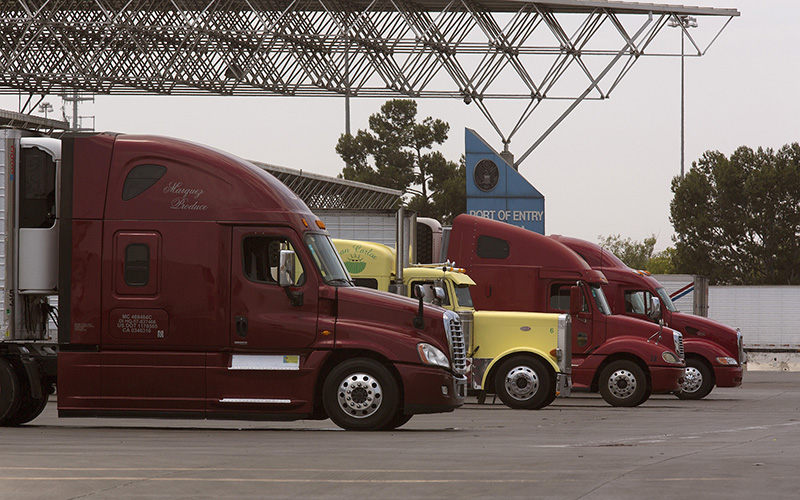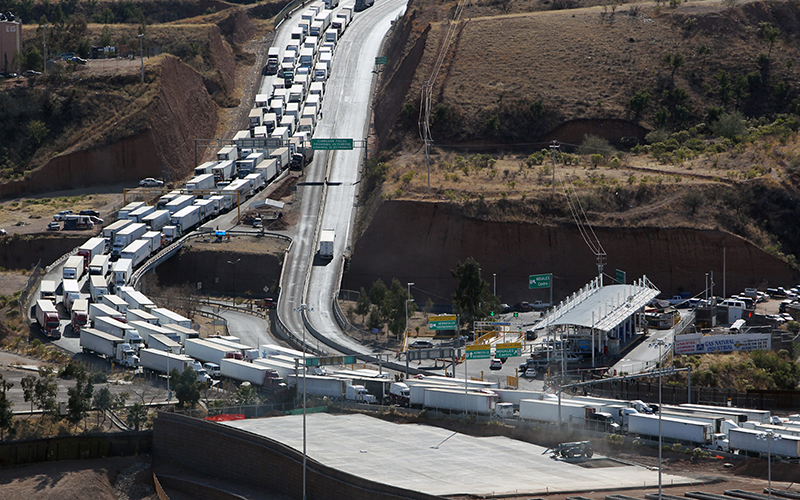WASHINGTON – There’s often not much agreement on news out of Washington, but Arizona business leaders were hard-pressed this week to come up with negatives about the United States-Mexico-Canada Agreement that took effect Wednesday.
The deal, which has been several years in the making, replaces the 25-year-old North American Free Trade Agreement that created the three-country trading zone that economists say has been worth billions in trade and thousands of jobs in Arizona alone.
“USMCA cements this trilateral alliance – it’s really historic,” said Julie Pastrick, president and CEO of the Greater Flagstaff Chamber of Commerce and a member of the Arizona-Mexico Commission board.
And NAFTA was good for Arizona: A Business Roundtable fact sheet on the USMCA claims that trade with Canada and Mexico supported 228,300 Arizona jobs in 2017. The Arizona Chamber of Commerce estimated that 19,000 of those trade-related jobs were in manufacturing.
The numbers are similarly stunning when it comes to trade, with exports and imports between Arizona, Canada and Mexico topping $20 billion in 2017.
A U.S. Trade Representative fact sheet said exports alone totaled $9.7 billion, with $2.2 billion in goods to Canada and $7.5 billion to Mexico, the state’s largest trading partner. When services are added in, total exports from the state were $11.3 billion, according to the Business Roundtable.
Business leaders have similar high hopes for the new USMCA, which some are calling NAFTA 2.0.
“Studies anticipate the new agreement will add $68.2 billion to the U.S. economy and create 176,000 new jobs at a critical time, which Arizona stands to benefit from,” said Chris Camacho, president and CEO of the Greater Phoenix Economic Council.
Juan Ciscomani, Gov. Doug Ducey’s senior adviser for regional and international affairs, said the benefits to Arizona are not surprising, given its location.
“Arizona being a border state is a huge asset and advantage for trade,” he said.
Some Arizona industries do particularly well with their North American trading partners, according to the Business Roundtable. Canada and Mexico bought 96% of Arizona’s $338 million in vegetables and melon exports, 90% of its $1.1 billion in metal ores and 84% of the $262 million in engines and turbines exported in 2017.

Trucks wait to enter the U.S. from Mexico in this 2016 photo from the Otay Mesa, California, Port of Entry. One report said Arizona trade with Mexico and Canada, both imports and exports, totaled more than $20 billion in 2017. (File photo by Glenn Fawcett/U.S. Customs and Border Protection)
The deal touches industries as varied as Lucid Motors, a new electric car manufacturer in Pinal County, according to Ciscomani, and Joy Cone, an ice cream cone maker with a plant outside Flagstaff, according to Pastrick.
Not all small and medium-sized businesses are aware of the potential benefits of the USMCA, according to a survey by DHL Express U.S., which found that 23% of respondents did not know how they would be impacted by the trade deal.
Eugene Laney Jr., DHL’s head of international government affairs, said one problem was that some small businesses felt that NAFTA was complicated, which may have led to reservations about the USMCA. But he said the new deal should help.
“Arizona businesses will benefit from the customs simplification, goods will move into Mexico without as much paperwork, seamless,” Laney said.
While the basis of the new deal preserves the free-trade foundation of NAFTA, there are several changes, including new protections for intellectual property, relaxed restrictions on e-commerce and new environmental standards. It also requires that some Mexican businesses pay at least $16 an hour to workers in some parts of the auto manufacturing supply chain.
The pay requirement “sets the stage for more manufacturing to move from Mexico to U.S,” said Usha Haley, a professor of management at Wichita State University’s Barton School of Business,
But Haley, who also directs the school’s’ Center of International Business Advancement, said there are question marks regarding the enforcement of environmental obligations in the USMCA. She said Mexican infrastructure may have trouble handling strict guidelines set forth in the deal.
Tamara Kay, an associate professor of global affairs and sociology at the University of Notre Dame, said one key to the new deal is how its provisions are enforced.
“It’s not perfect, but in key ways it is better than the original NAFTA,” Kay said. “The test is whether the enforcement mechanisms work on the ground, and whether they are enforced.”
While the deal may not be perfect, Pastrick said it’s still a good deal for the state, which is “extremely well positioned to add jobs.
“It’s the best trade agreement we could have dreamed of,” she said.

